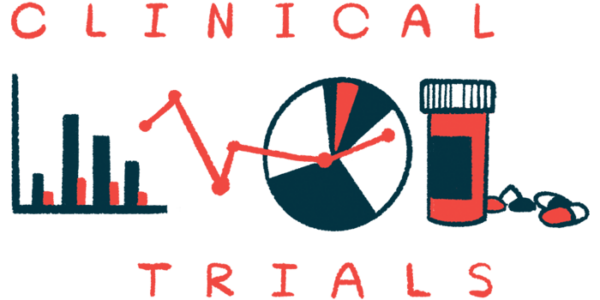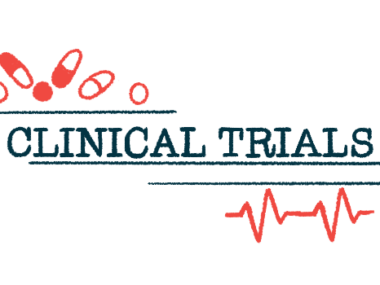ABI-4334 shows promise in hepatitis B Phase 1b trial: Data
Data from 1st group to be dosed show strong antiviral activity
Written by |

Oral therapy ABI-4334 shows potent antiviral activity in adults with chronic hepatitis B virus (HBV) infection, according to interim data from an ongoing Phase 1b clinical trial.
The interim efficacy analysis covered data from the first group of participants: eight patients who received 150 mg of ABI-4334 once-daily for 28 days and two patients who received a placebo instead.
“We are pleased to see strong antiviral activity in this first Phase 1b cohort for ABI-4334,” Anuj Gaggar, MD, PhD, chief medical officer of developer Assembly Biosciences, said in a company press release. “While this is an early read, these interim data reinforce the potential of ABI-4334 to achieve our target clinical profile.”
Enrollment is ongoing for the second group of 10 patients to test a 400 mg daily dose of the therapy against a placebo. Based on the antiviral activity seen in the first group, Assembly Bio expects this higher dose to be the last tested dose of the dose-finding Phase 1b trial. Data from the second group are expected in the first half of this year.
Pooled safety data from both groups to date supports a favorable safety profile for ABI-4334, even though results from the second group remain blinded and it is unclear which data corresponds to treated patients and which do not.
Partnership for development
If the Phase 1b study is successful, Gilead Sciences has the right to opt for continuing the development, and subsequently commercialize, ABI-4334 under a collaboration agreement with Assembly Bio.
“The goal of this Phase 1b study is to provide an initial efficacy and safety profile for ABI-4334 in the chronic HBV population,” Gaggar said. “When completed, the trial will support our evaluation of next steps for the program in tandem with our partner Gilead’s evaluation of their option.”
Hepatitis B is caused by an HBV infection and is marked by liver inflammation. While in most cases the condition resolves on its own, some people will develop chronic infections that increase the risk of cirrhosis, or permanent scarring of the liver, liver failure, and liver cancer.
Current treatments for chronic HBV infection include nucleoside/nucleotide analogs, a class of antiviral medicines that stop the virus from replicating its DNA.
ABI-4334 is Assembly Bio’s most potent capsid assembly modulator, a molecule that interferes with the formation of the shell surrounding the virus’ genetic material, called the capsid.
In preclinical studies, ABI-4334 was shown to disrupt HBV capsids in the cytoplasm, the thick solution that includes all of the material inside the cell and outside of the nucleus, where all genetic information is stored. This is expected to prevent the virus from entering the nucleus and forming rings of genetic material — called covalently closed circular DNA, or cccDNA — that are needed for its replication.
The ongoing Phase 1b study, ABI-4334-102 (NCT06384131), was designed to evaluate the safety, pharmacological properties, and antiviral activity of ABI-4334 against a placebo in up to five groups of 10 adults, ages 18-65, who have had an HBV infection for at least six months.
At enrollment, participants had not received or been off treatment for at least 24 weeks, or about six months, and had no signs of liver scarring or cirrhosis. The study included those who tested positive or negative for HBeAg, an HBV protein that shows the virus is actively replicating in the body.
Participants are randomly assigned, in an 8:2 ratio, to receive either ABI-4334 or placebo once-daily for 28 days, meaning eight patients receive treatment and two placebo. Antiviral activity is being assessed by measuring the levels of HBV DNA in patients’ bloodstreams.
Most of the participants in the first group tested negative for HBeAg, an HBV protein that shows the virus is actively replicating in the body. Data from this group showed that ABI-4334 resulted in potent antiviral activity, as indicated by a pronounced reduction of HBV DNA after 28 days.
Patients with detectable circulating HBV RNA, which reflects the activity of HBV’s cccDNA, at the study’s start, also saw their HBV RNA levels strongly decline after 28 days of treatment with the 150 mg dose.
In pharmacological studies, ABI-4334’s half-life, or the time it takes for the medication level in the blood to drop by half, supported a once-daily dosing regimen. Medication levels in the blood were maintained above those needed for potent antiviral activity and to prevent the formation of cccDNA.
Based on pooled safety data from the first 150 mg group and some patients who received 400 mg or a placebo in the second group so far, ABI-4334 appeared to be generally well tolerated and have a favorable safety profile.
No safety signals have been identified, and no adverse events that led to treatment discontinuation were reported. Two patients in the first group had a serious elevation in liver damage markers that was resolved without the need to stop treatment.







